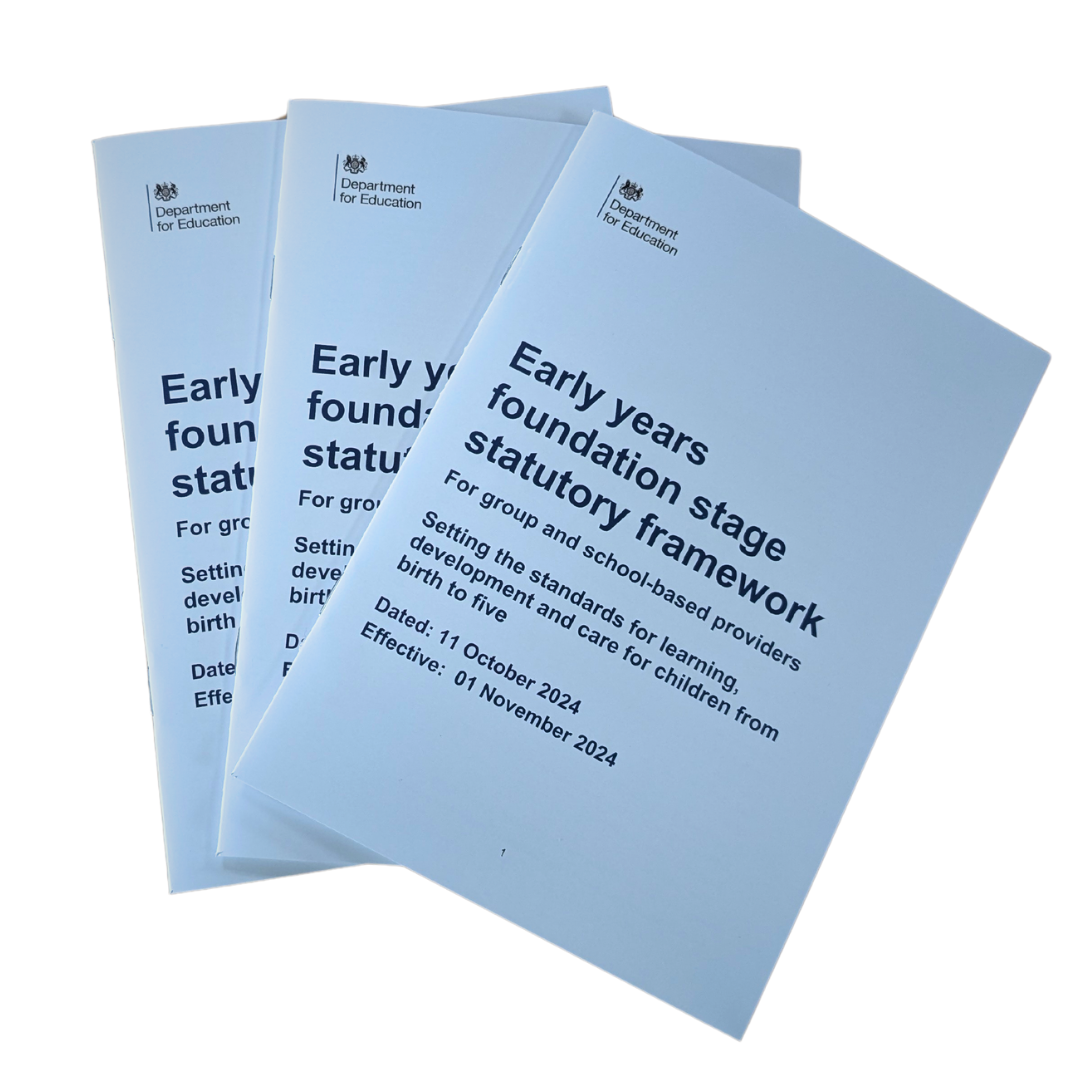Early Years Foundation Stage (EYFS) 2024
This version of the EYFS Framework came into force on Friday 1 November 2024.
There are two frameworks and providers are responsible for ensuring that they follow the current version of the framework for their provider type.
-
- EYFS statutory framework for childminders
-
- EYFS statutory framework for group and school-based providers
The EYFS framework includes early years qualification requirements and standards.
We are waiting for the new EYFS Framework for 2025 to be released and will share the updates once it has been published.
We are aware that there will be updates related to the Safeguarding Reforms. Foundation Years have published this summary of changes which you can view here
In addition, there will be updated nutrition guidance to support providers to meet the EYFS statutory requirement to ensure meals, snacks and drinks are “healthy, balanced and nutritious”.
Order your printed copy here
What is the Early Years Foundation Stage (EYFS)?
The Early Years Foundation Stage (EYFS) sets the standards you must meet as a childcare provider, for the learning, development and care of children under the age of five in England. All schools and Ofsted-registered early years providers must follow the EYFS.
The Early Years Foundation Stage Statutory Framework provides you with the common principles and commitments to deliver the EYFS.
Birth to 5 Matters
Birth to 5 Matters is guidance produced by the sector, for the sector, to support the introduction of the revised Early Years Foundation Stage in England in 2021.
It is non-statutory guidance that practitioners may use to support their implementation of the Statutory Framework for the Early Years Foundation Stage, which sets out the legal requirements for delivering education for children from birth to 5 in England.
Early Years Foundation Stage (EYFS) Statutory Framework 2024
The new revised Early Years Foundation Stage (EYFS) framework was mandatory for all group and school-based early years providers in England from Friday 1 November 2024.
Get your A5 copy, professionally printed and bound for just £5.50 (for members)!
Don’t forget to save with our bulk pricing for multiple copies!
Order now
2 year progress check update
Download the non-statutory guidance for the early years foundation stage progress check at age two.
Early Years Foundation Stage (EYFS) training
Find NDNA’s leading EYFS training in our shop, including our EYFS online training
See our training




